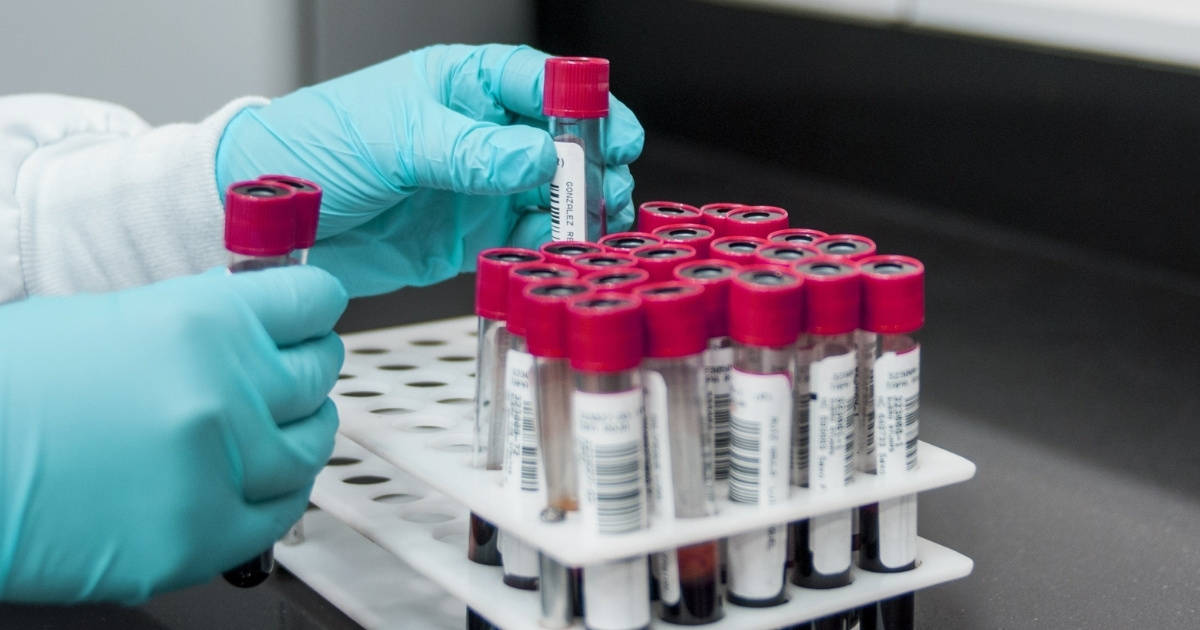If you live with diabetes, you are probably familiar with getting poked and prodded for blood constantly.
But more than just testing one’s blood sugar, people with diabetes require regular laboratory tests to monitor everything from one’s hba1c to Vitamin D levels (people with diabetes tend to run low), to even the amount of protein in one’s urine.
This article will outline the most important regular lab tests that people with diabetes should get, how they’re measured, and how to advocate for yourself to make sure they’re included in your care plan.

Why are routine lab tests important?
Just like the famous saying, “what’s measured is managed”, what gets measured with your diabetes is usually better managed as well.
Think of the example of blood sugar measuring. Without regularly measuring your blood sugar levels, you wouldn’t be able to make those minor adjustments to your insulin dosages that can make all the difference between a higher hba1c and a lower one (regular measuring and insulin adjustments can also vastly improve your Time in Range (TiR) percentage as well).
This matters because you may not always be able to feel the difference between sitting at 140 mg/dL and 218 mg/dL, but over time, that can mean the difference between living a life with diabetes complications and one without them.
Likewise, it’s important to regularly measure the health of vital organs that can be affected by your diabetes, such as your heart, eyes, and kidney functioning, to better manage any issues right when they appear, as compared to later on in life when issues may become more serious and interventions more substantial.
What are the most important lab tests for diabetes management?
If you’ve had diabetes for a while, you may find some of these lab tests familiar, while others may seem brand new.
While all laboratory tests are important for good health, the following are the most important to include in your diabetes management to prevent the onset of diabetes complications and to make sure your body stays healthy.
Hemoglobin A1C
The hemoglobin a1c, or “hba1c” for short, is a measure of the amount of glucose that has attached to one’s red blood cells over the previous 3-4 months.
A blood sample is taken from the patient and sent away to a lab for results within anywhere between a few hours and a few days.
It’s important to remember that this is an average, so the typical hba1c test can miss a lot of both high and low blood sugars, while giving out a nice % to the patient.
More providers are turning to Time in Range (TiR) for a better representative sample of a patient’s overall control.
Although that does require access to a continuous glucose monitor (CGM); anyone who lives with diabetes can measure their overall control via an hba1c test, which can be more affordable.
The American Diabetes Association recommends an hba1c of less than 7% for most adults with diabetes.
You can also measure your A1c yourself with an A1c home test. They are inexpensive and reliable.
Blood pressure
Although this may seem routine, getting your blood pressure (BP) measured regularly as a person with diabetes is crucial for good care.
According to Johns Hopkins Medicine, people with diabetes are 2 to 4 times more likely than others to develop heart disease. Closely monitoring blood pressure is key to preventing issues early on.
A measurement of one’s blood pressure shows how much blood is passing through your blood vessels along with how much resistance is present when your heart moves blood throughout your body. The narrower your arteries are, the higher your blood pressure will be.
Most providers recommend a blood pressure reading of around 120/80, but anything higher than 140/90 requires immediate emergency medical attention.
This simple, non-invasive test can truly be lifesaving.
Microalbumin
A microalbumin test is a urine test that shows the functionality of one’s kidneys by measuring the amount of protein (if any) in the urine.
Microalbumin is detectable in the blood, but large amounts in the urine can signify greater, more dangerous issues with one’s kidneys.
Any measurement greater than 30 mg is cause for concern. Unmanaged diabetes is the number one cause of kidney failure in the world, so making sure your kidneys are functioning well often is vital.
Your doctor can usually order a microalbumin urine test to be taken at the same time as your regular blood draws in the laboratory.
You can learn more about how diabetes affects your kidneys in our Guide to Diabetic Nephropathy (Kidney Disease).
Vitamin D
Vitamin D is a fat-soluble vitamin that is naturally present in some foods such as salmon, mackerel, eggs, and cod liver oil.
It is also available as a dietary supplement and is produced endogenously when ultraviolet (UV) rays from the sun hit one’s skin, triggering Vitamin D synthesis.
Vitamin D deficiencies are linked to the development of diabetes, and a study from Denmark showed that chronic low levels of Vitamin D in people with diabetes can lead to increased risk of complications and death.
Many people with diabetes also have low levels of Vitamin D in their bloodstream, so getting this tested regularly can be helpful, especially in the winter when the sun doesn’t emit high levels of UV rays for Vitamin D production.
Vitamin D deficiencies can lead to depression, weaker bones, cognitive impairment, severe asthma in children, cancer, and increased risk of death from cardiovascular disease.
A Vitamin D test can be included in any regular blood draw, or in a complete blood count (CBC).
A dilated eye exam
It is especially important for people with diabetes to get a dilated eye exam yearly to prevent complications of the eye.
A dilated eye exam is one where images are taken of the optic nerve, retina, and surrounding blood vessels, all of which can be easily damaged by chronic high blood sugars.
Diabetic eye disease and retinopathy can strike with no symptoms, so it’s of utmost importance that you get your eyes checked out by an ophthalmologist every year.
You may not need new glasses yearly (and your insurance may only cover new eyeglasses every two years), but since you have diabetes, most health insurance plans will cover at least a retinopathy prevention check-up annually.
Check with your individual health insurance plan to be sure, however.
Lipid Profile
A lipid profile or panel is a set of blood tests used to measure any abnormalities of blood fats. This is especially important because heart disease and its complications is the number one cause of death for people living with diabetes.
A typical lipid profile measures the following:
- Total cholesterol (normal is less than 200 mg/dL)
- LDL (“bad”) cholesterol (optimal is less than 100 mg/dL. This is the goal for people with diabetes or heart disease)
- HDL (“good”) cholesterol (levels should be above 40 mg/dL)
- Triglycerides (normal is less than 150 mg/dL)
Depending on the results of your lipid profile, your doctor may recommend lifestyle changes and/or medications to bring your lipids back into normal range.
Just be cognizant that this blood test requires one to fast (all but water!) for between 12-14 hours before the blood draw. Eating or drinking before the test may alter the results.
Doctors often prescribe statins to patients with high LDL cholesterol. Our guide Statins & Diabetes: Everything You Need To Know is a great place to learn more about the pros and cons of statins.
Conclusion
While regular check-ups with your doctor and visits with your endocrinologist are excellent ways to stay on top of your diabetes, these 6 routine laboratory tests are crucial for better diabetes management and to help prevent the onset of diabetes complications.
Check with your doctor to see if you can get any of these tests taken if you haven’t had them completed in a while.
As with all things diabetes, prevention is key and what’s measured is (better) managed.



